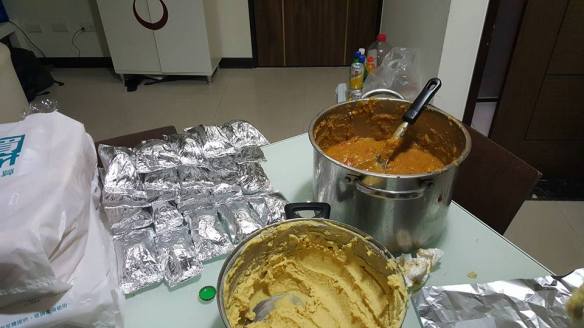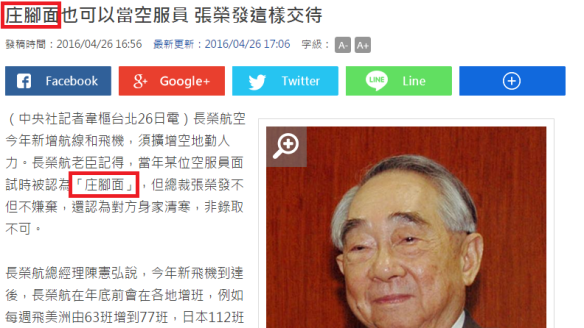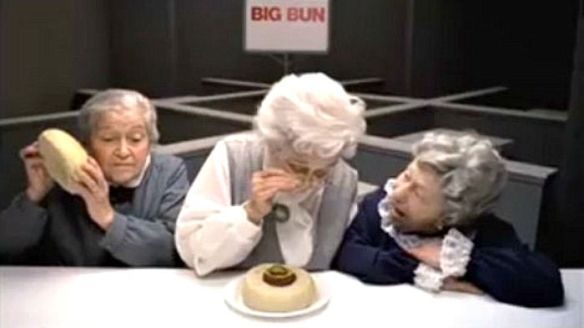
A friend of mine posted a Taiwanese phrase in a Mandarin-language Facebook post recently that caught my eye:
「人生第一次抽中1元飲料,居然是幫[某某人]買咖啡,這就叫豬沒肥,去肥到狗吧~~」
The post translates roughly to:
For the first time in my life I got a drink for NT$1 in a lucky draw, and it turned out to be when I was buying a coffee for [name omitted], isn’t this what they call [lit.] the pig not getting fat, while the dog balloons.
There seems to be several variations of this phrase, including the one above, the version my colleague suggested 「豬沒肥,肥到狗」(ti bô pûi, pûi tio̍h káu) and the one listed on the Ministry of Education dictionary 「豬毋大,大對狗去」(Ti m̄ tuā, tuā tuì káu khì (Click link for audio)). A literal reading of the phrase is someone being unable to fatten their pig for market, while the dog, which is meant to serve as a guard dog, and should be agile, is getting fat instead.
One explanation of this phrase I found at this blog, suggests that it was originally quite a misogynistic phrase, as it could be used to describe a situation wherein the son of a house, who would actually benefit the family if he got a good education, gets bad grades in school, while the daughter, who wouldn’t benefit the family with an education, gets good grades:

A very horoscope-heavy profile on Weiling Chen (陳慧翎), the director of the Taiwanese drama On Children (《你的孩子不是你的孩子》) and the actor in the recent first episode, Ivy Yin (尹馨) makes reference to this interpretation, when the director (Chen) mentions that her mother once used the phrase, comparing her and her younger brother:
雙魚座的陳慧翎成長壓力來自不被了解,難忘媽媽說過「豬不肥、肥到狗」,意旨為何她比弟弟優秀。
“Piscean Chen Weiling’s pressure growing up came from not being understood. She always remembers when her mother said, “the pig won’t get fat, while the dog gets fatter,” questioning why she was more brilliant than her little brother.”
It does seem to have a wider application, however, as both the poster and the subject of my friend’s post were male. In this context it’s kind of a mixture between ‘casting pearls before swine’ and a bitter cry of ‘why do some guys have all the luck.’ My friend is suggesting (jokingly) that he deserves good luck, but instead it’s being wasted on his friend.
A report in the Liberty Times used the phrase in a political context too, although the fact that Tsai Ing-wen is a woman may make the use of the phrase more natural. If you couldn’t tell from the subtle objective tone below, Liberty Times is not a big fan of the KMT:
國民黨一向認為兩岸關係為其強項,其領導菁英都想跑北京領命,現在恐怕成了選票毒藥,致英雄無用武之地。
在這樣的情況演變下,如果蔡英文不犯錯,十一月的選舉大勢不難推估,唯有執政黨穩固了這次中期選舉,才有可能促使北京重新考慮其對台對口的設定,兩岸在明年才有機會鬆動緊繃的局面。不過,中國到頭來肯定會發現竟是「豬不肥,肥到狗」。這樣的辯證關係,豈不是很好玩嗎?
“The KMT has always considered cross-strait relations its strength, and its leading elites take their orders from Beijing. Now, it seems, this has become toxic to their election hopes, so these heroes are unable to make use of their skills in this department.
As the situation continues to evolve, if Tsai Ing-wen doesn’t make any mistakes, the overall trend of the November election isn’t hard to guess at, as only the party in government will be sitting pretty in the mid-term elections. It’s only this situation that will drive Beijing to reconsider their stance on Taiwan. Cross-strait tensions are unlikely to ease until next year. However, China, in the end, is sure to discover that “the pig isn’t getting fatter, while the dog is ballooning”. Isn’t this dialectic quite good fun?”
This suggests that China will end up working with the DPP (the fat dog), rather than the KMT (the skinny pig), despite its idea of which party should be the best for it to work with.
 One of the great things about living in Taiwan is that when political leaders make speeches, like the speech made by Xi Jinping on Jan. 2, there is a flurry of discussions and critique on political panel shows and on social media, and people aren’t scared to express their own opinions on them. This is also a great learning opportunity, as people are more likely to come out with an interesting turn of phrase when they’re not being overly careful about what they’re saying.
One of the great things about living in Taiwan is that when political leaders make speeches, like the speech made by Xi Jinping on Jan. 2, there is a flurry of discussions and critique on political panel shows and on social media, and people aren’t scared to express their own opinions on them. This is also a great learning opportunity, as people are more likely to come out with an interesting turn of phrase when they’re not being overly careful about what they’re saying.


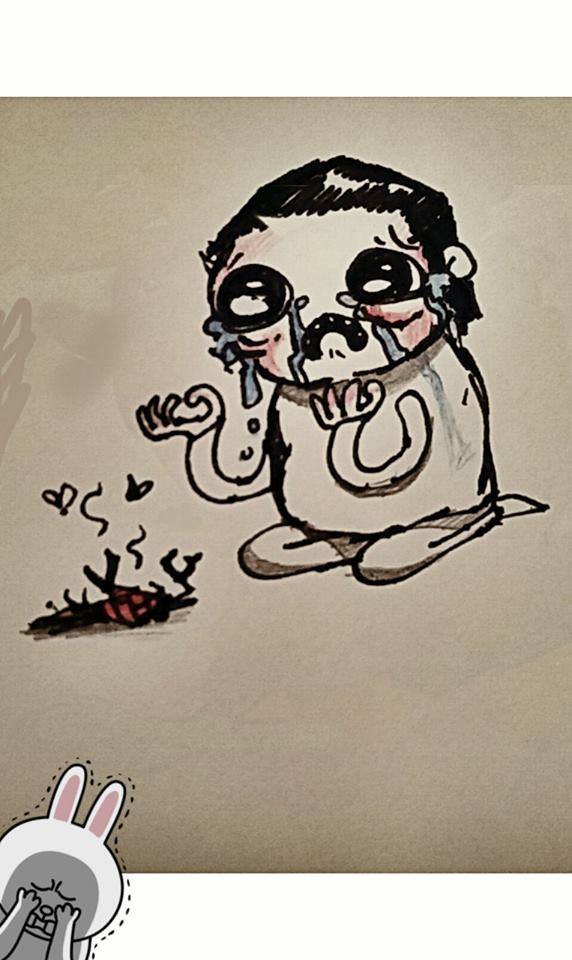
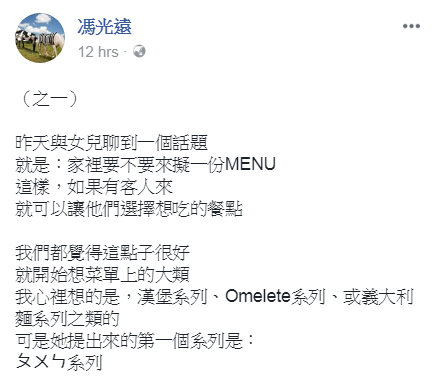
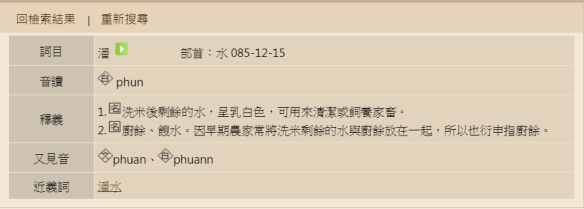
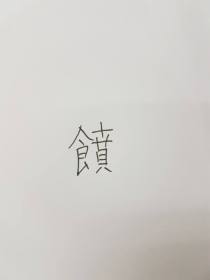


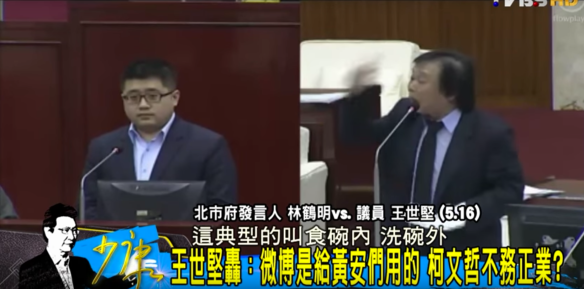 I don’t have a TV at home, so when I was recruited by a friend to wrap tamales at his house, I got a rare opportunity to watch some political talk shows, which are usually amusingly varied according to the political affiliation of the channel they’re broadcast on. This one from TVBS (relatively Kuomintang-leaning/blue), is called ‘The Situation Room’ in English and 「少康戰情室」 in Chinese. Footage from the Legislative Yuan is always a great opportunity to learn some Taiwanese of the shouty aggressive variety:
I don’t have a TV at home, so when I was recruited by a friend to wrap tamales at his house, I got a rare opportunity to watch some political talk shows, which are usually amusingly varied according to the political affiliation of the channel they’re broadcast on. This one from TVBS (relatively Kuomintang-leaning/blue), is called ‘The Situation Room’ in English and 「少康戰情室」 in Chinese. Footage from the Legislative Yuan is always a great opportunity to learn some Taiwanese of the shouty aggressive variety: